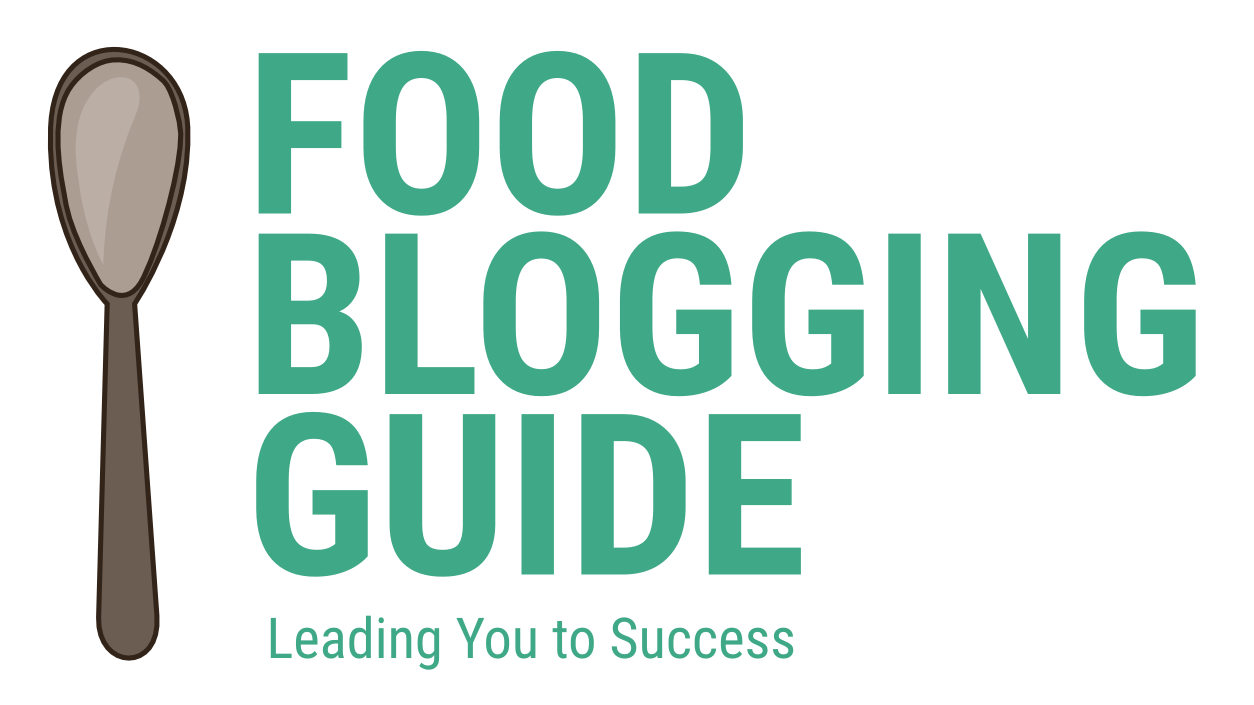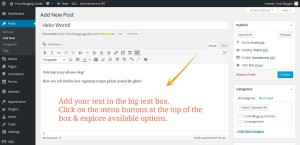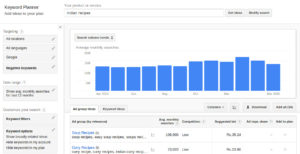Blogging is fun. More so when it also generates an income for you. What’s a better reward for your efforts than money? Food bloggers who put in lots of effort to generate content for their websites must monetize their blogs and get rewarded.

Content & Traffic Comes First
Newbie bloggers who look at their food blogs as an avenue for generating income want to generate money from Day 1. Let’s face it. It’s not going to happen. You need to build your product (blog) before expecting any revenue. Consider your blog akin to an orchard. You need to plant the saplings and then nurture it for a while before reaping the fruits.
Start writing as prolifically as you can. Add lots and lots of recipes as well as your food adventures on the blog. Share it with friends and family. Use social networks to share your blog to a wider audience. Engage with others in the food blogging space and establish your blog & your identity as a pro blogger.
Highly recommended that you wait till your blog has at least 50 articles and some traffic (say, 250 visitors a day) flow. Without content and traffic, trying to monetize your website is futile. (Use Google Analytics to monitor traffic to your website.)
Let’s see what are the options that we can use to monetize our food blog content.
1. Google Adsense
One of the most popular advertisement platform is Google Adsense for publishers. Joining the Adsense network is easy. Complete the form, and include the Google Adsense code in your website. Google will review your website and approve (or disapprove) your website for the network. Learn how Google Adsense works here and familiarise yourself with Adsense tips.
Before applying for Adsense, make sure that your website looks professional, and has substantial content volume. Suggested to have around fifty articles and wait for at least one month from starting your blog. It is also important that you include About Us page, Terms & Conditions page, Contact Us page with contact form and email/phone, and Privacy Policy page that mentions whether you use cookies or not & how you show ads, etc. based on Google’s guidelines to its publisher websites.
Adding Google Adsense Code: You don’t have to add the Adsense code manually to each webpage. If you are using the WordPress blogging platform, you can use plugins such as Google Adsense (official) and Easy Adsense. When using the Easy Adsense or any plugin other than the official one, generate the Google Adsense code (recommended to use the responsive ad size option) with a matching color scheme & paste it in the plugin settings page at the right places.
CAUTION: NEVER EVER CLICK ON ADS SHOWN ON YOUR OWN WEBSITE!
Google Adsense requires you to never click or promote others to click on ads on your website. If you are ever found doing so (Google does find it out often), you will be kicked out of the Adsense network forever. You don’t want this to happen. Also, make sure to read the Adsense policies on content for its publishers. No adult content or even hyperlinks, no gambling, no illegal stuff, no copyright infringements, etc.
2. Advertising Networks
Apart from Google Adsense, there are other advertising networks that you can try such as BuySellAds.com, Gourmetads.com, Sovrn.com, Blogher.com and Blogads.com. You can use these ads along with Google Adsense.
3. Affiliate Marketing
Affiliate marketing is promoting products for sale through referrals. Generally speaking, affiliate marketing works with blogs that have good traffic.
In affiliate marketing, you recommend some products/services on your blog and place a link to a product on your website. When someone visits the merchant website using your link and purchases a product, you get a commission for the sale. Most affiliate programs use a cookie (web browser tracking coded) to identify your referral customers and crediting the sale into your account if done within the validity period.
You can join Amazon.com and add links to relevant products for your blog articles. You can also show them in your sidebar. You can also become an affiliate of other related products and services such as web hosting, etc.
4. Sponsorships
Sponsored posts and other forms of blog sponsorships work for established blogs. For sponsored articles and other sponsorships, you will have to rely on advertisers to discover you.
Create an “Advertise With Us” page on your blog. Share the options to place direct advertisements, sponsorship avenues, etc. Don’t forget to share some basic information about your blog’s reach, audience information, etc. This will help potential advertisers discover you easily.
Website Design & WordPress Installation Service: ➡ Need help creating your website or blog? We can help you pick the right web hosting, install WordPress blogging system optimally and help you launch your website. Connect with us for WordPress blog installation and web design services.






